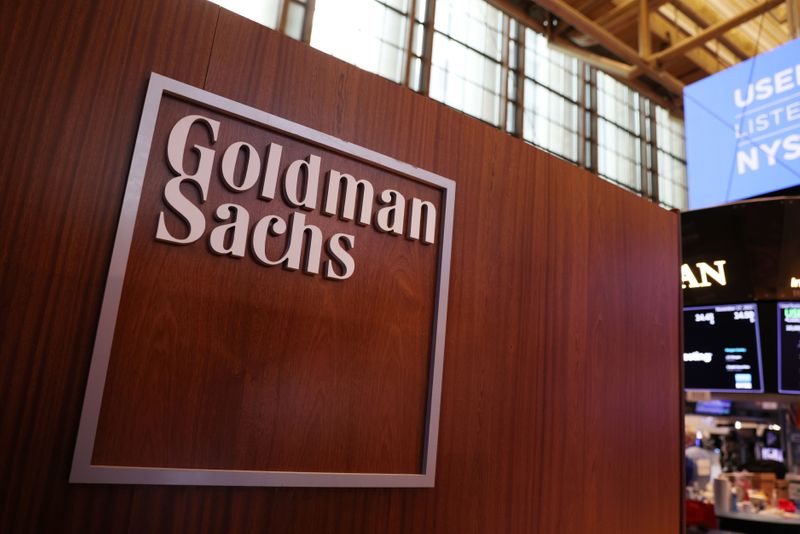(Bloomberg) -- Goldman Sachs Group Inc (NYSE:GS) is issuing words of caution for dip buyers plunging back into stocks: The December volatility breakout has room to run -- and risk gauges aren’t yet flashing buy signals.
The hawkish tilt from the Federal Reserve just as the omicron variant spreads will continue to create all manner of trading challenges in the near-term, according to Christian Mueller-Glissmann, managing director of portfolio strategy and asset allocation at the firm.
After a selling wave that brought down everything from big tech to Bitcoin, the Goldman Sachs Risk Appetite Indicator is below zero, but it could still fall farther, according to the firm.
“Without any view on better macro you would want the RAI closer to -2 before adding risk,” said Mueller-Glissmann in an interview. “A drop below or near -2 could create a very good opportunity to re-risk and position more procyclical, especially if growth stabilizes post-omicron.”
His caution contrasts with a big turnaround in risk assets this week on signs the new strain won’t be as virulent and deadly as feared and won’t drive the economic recovery off-course.
Meanwhile, a Deutsche Bank AG gauge signals risk assets may be closing in on a bottom.
Volatility markets show fragile sentiment. Investors are paying up to hedge against wilder swings than what they’ve experienced already. Last week’s run of turbulence was the worst in a year, with the S&P 500 notching up or down moves of at least 1% on five straight days through Friday.
At 27, the VIX still sits seven points above its average for the year and the front-month futures contract is higher than ones in subsequent months, a signal that investors anticipate near-term turbulence to persist.
Read more: Traders Find Troubling Clues in VIX to More Stock Turmoil Ahead
All the same, a Deutsche Bank cross-asset momentum measure is firmly negative and already near historic lows.
“The breadth is now approaching a place where it does usually turn around so we’ll expect some asset classes to find a bottom here,” Parag Thatte, strategist at Deutsche Bank, said in an interview. “The turnaround should be in the short term, it should be in the next three-four weeks.”
©2021 Bloomberg L.P.
